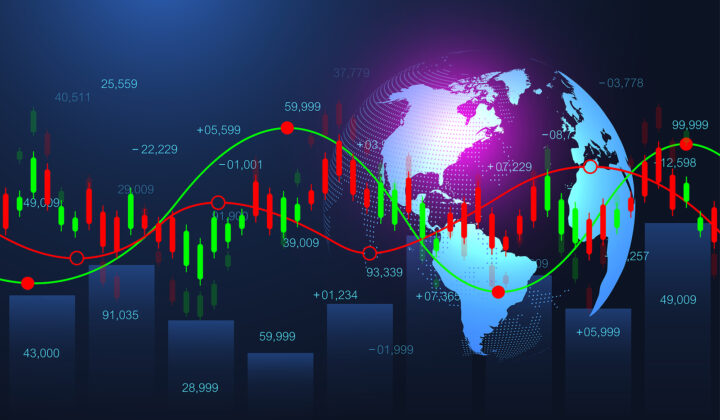Investing your money can be a great way to generate wealth over time, but it can also come with some risk. Deciding between Forex and stock markets is essential for any investor, so evaluating all the options available will help you determine which one may offer better opportunities for your goals.
The best market will depend on your individual circumstances, and since no two investors are the same, no two portfolios should be exactly alike. For most long-term investors, stocks will outperform currencies, but they may be less suitable for short-term trades due to greater volatility and reduced liquidity.
This article compares and contrasts both types of investment vehicles to provide an overall understanding of their advantages and how they differ.
We’ll explore topics such as liquidity, volatility, trading requirements, costs associated with trading per market type, and much more – helping investors make a more intelligent decision when considering stocks or Forex before investing their capital into the right market.
Introducing the Two Different Markets and What They Involve

In the business world, there are two primary markets that companies actively engage in: the consumer market and the business market. These markets can be distinguished by their respective customer bases, purchasing behaviors, and overall goals. The consumer market comprises individual customers, whereas the business market comprises other companies and organizations. While both markets serve different purposes, they involve a similar product or service delivery concept.
In the consumer market, the focus is on satisfying customers’ individual needs and desires, leading to highly targeted and personalized marketing efforts. In contrast, the business market emphasizes building solid relationships with other companies and providing products and services that meet their needs.
Understanding the intricacies of these two markets is essential for any business looking to thrive in today’s dynamic and competitive landscape. At ADSS, they offer expert analysis and insights into the foreign exchange (Forex) and stock markets to help investors navigate these complex financial environments. More importantly, they offer both live and demo trading accounts for traders to execute real trades or hone their skills in a protected environment.
Comparing the Liquidity, Leverage, and Volatility of Both Markets

Liquidity is a crucial factor to consider when comparing Forex and stock markets. The Forex market allows for more liquidity, with over $5 trillion traded daily compared to the stock market’s average of around $200 billion.
This high liquidity in Forex markets means that trades can be executed swiftly and at a lower cost, making it easier for investors to enter or exit positions. Liquidity reduces the volatility of the market since there is almost always a buyer available to match with each seller.
Additionally, Forex markets offer higher leverage options, allowing investors to control more significant positions with a smaller initial investment. However, with this increased leverage comes higher risk, making it essential for investors to have a solid risk management strategy.
On the other hand, stock markets usually offer less leverage and lower liquidity due to limitations set by regulatory bodies. It can make it more challenging for investors to enter or exit positions quickly, and it also means that transaction costs can be higher.
Regarding volatility, both Forex and stock markets can experience significant price fluctuations. However, Forex markets tend to have more stable price levels due to high levels of worldwide trading activity. In contrast, stock market volatility depends on specific company news and economic factors.
Finally, it is very important to remember that some subtypes of each market may behave differently. For example, exotic or emerging markets currency pairs may well have low volatility, low liquidity, and difficulties in market access.
Conversely, some equities such as utility companies and consumer goods companies are far less volatile than the overall market. Nonetheless, as a general rule, equities are both more volatile and also higher-yielding as long-term assets, whereas forex is more suited to investors who want to hold cash as an asset.
The Advantages and Disadvantages of Each Market

One of the main advantages of Forex trading is its accessibility. With a global market that operates 24 hours a day, five days a week, investors can trade at any time from anywhere in the world. It allows for more flexibility and potential for profit opportunities. Additionally, Forex markets have low barriers to entry, making it easier for new investors to get started.
On the other hand, stock trading offers the potential for long-term growth and dividends. By investing in well-established companies with a proven track record, investors can benefit from steady returns and potentially build wealth over time. However, stock markets also come with higher risks, as individual company performance can significantly impact the value of investments.
Analyse Current Trends and Patterns Within Each Market
As with any investment, staying informed about the current trends and patterns within each market is crucial. Forex trading has become increasingly popular in recent years due to its high liquidity, accessibility, and potential for profit. However, stock markets have also seen significant growth, particularly in technology.
Regarding volatility, both markets have experienced significant fluctuations due to global events such as the COVID-19 pandemic, political tensions, and economic uncertainty. It highlights the importance of diversifying investments and having a well-researched strategy to mitigate risk. Equities are more volatile than currency pairs, but you should still remember that FX markets can experience sudden bouts of volatility, and for leveraged traders these may destroy returns quickly.

Which Type of Investors Should Consider Each Market?
Forex markets may be more suitable for short-term traders or investors looking for quick profit opportunities, as the high liquidity and leverage options allow for more flexibility and potential returns. On the other hand, stock markets may be better suited for longer-term investors willing to take on higher risks in exchange for potential long-term growth and dividends.
Ultimately, the decision between Forex and stock markets depends on an individual’s risk profile, investment goals, and personal preferences. It is always recommended to seek guidance from a financial advisor or conduct thorough research before making investment decisions.




